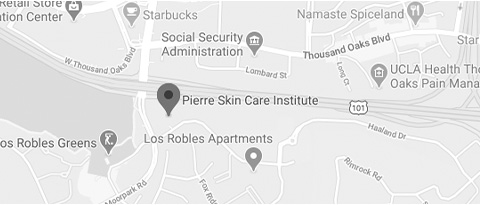What Can You Do to Minimize Acne Scars?
Acne is an extremely common skin condition not just in the United States, but around the world. Although it is often thought of as a “teenage” problem, millions of adults also deal with everything from blackheads to pimples to cysts. In addition to having to manage uncomfortable and embarrassing flare-ups, this skin condition can often cause dark spots, redness, and scars to form after a breakout. If you have severe types of acne lesions, you should know that they can damage the surrounding skin when they burst. Additionally, picking or squeezing at spots can make scarring worse. With all of this in mind, patients often ask us how to deal with acne—and the complications it can cause. A common question we hear is: Does acne scarring ever go away? Our Westlake Village-based team at Pierre Skin Care Institute can provide plenty of information related to reducing facial acne scars if you’re hoping to restore smoother, clearer skin.
First, it’s important to understand that acne scars fall into several categories, including depressed (atrophic) scars that result from a loss of collagen when the skin heals and raised (hypertrophic) scars that develop when the skin produces too much collagen as it heals.
While spots aren’t the same thing as scars, discolored areas can also form as a complication of acne due to post-inflammatory hyperpigmentation.
The reality is that while certain marks may fade or become less noticeable over time, acne scars don’t fully go away on their own. However, there are both at-home and in-office treatments that can be used to address them.
Here’s some more information about how different remedies work. The best acne scar treatment for you depends on your skin type and the type of scarring you have.
Over-the-Counter Treatments
Products you can buy over the counter to help fade scars should include specific ingredients, such as salicylic acid, retinoids, and alpha hydroxy acids. Note that these products won’t be useful for flattening raised scars, but can work to make flat scars less noticeable.
Dermatological Treatments
Another option to consider is in-office procedures. These include skin resurfacing treatments that promote skin cell turnover, such as laser skin resurfacing, DermaSweep, and chemical peels. Laser treatments work best for raised scars and discoloration. Microneedling and facial fillers are excellent for shallow, depressed scars, since microneedling encourages the body to build more collagen while fillers temporarily make indented scars look smoother.
Contact our Westlake Village-based team at Pierre Skin Care Institute if you want more advice about acne scar treatments. Call us at 805-496-9190 or fill out a contact form to schedule a consultation and meet with our team.




